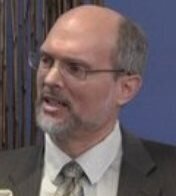In his 2016 book "The Demon in Democracy," Ryszard Legutko articulates the equality paradox. Namely,
"The more equality one wants to introduce, the more power one must have; the more power one has, the more one violates the principle of equality; the more one violates the principle of equality, the more one is in a position to make the world egalitarian" (p. 133).
Legutko labored to save Poland from communist totalitarianism, only to discover after the Soviet collapse that liberal democracy can be an even more effective agent to destroy personal liberty.
"If the old communists lived long enough to see the world of today," Legutko says, "they would be devastated by the contrast between how little they themselves had managed to achieve in their anti-religious war and how successful the liberal democrats have been" (p. 167).
Christianity begins with a high vision of human potential (we are made in the image of God), recognizes the human fall into self-service, but still issues the highest call for what we can be. Meanwhile, those who see humans as no more than the mathematically unlikely product of mindless nature, assume the mantle of gods and swoop in to enforce equality upon us. It is pretense.
Christianity starts with a high view of God-given free will. What we can become is high, beautiful and moral. In contrast, human overlords want to take us to the place where we can have abortions, stand on dots, and deny biological reality together, equally.
Progress?
Men cannot be forced to be free, and they cannot be forced to be equal. No intricate system of checks and balances can long maintain equilibrium while a pack of lemmings-who-would-be-king are tearing each other's fur out, willing to kill in order to impose their view of life.
"Because the suspicion that an unequal distribution of power is immoral and illegitimate increases with the progressive victories of egalitarianism, the struggle for equality has no ending. Equality resembles a monster with an insatiable appetite: regardless of how much it has eaten, the more it devours, the hungrier it becomes."
Indeed, writes Legutko, "there are always newer areas to conquer and deeper sources of inequality to discover" (pp. 135-136). But who is called to aspire to equality?
To enforce equality means that someone, somewhere, must be appointed to be the measurer. This is a scam. We all have potential to achieve, and all should recognize that potential in all men. And yet, we achieve different things, and differently.
All flowers are not the same, all waterfalls, all mountains; each has its own beauty. One mount Fuji cone volcano is beautiful. But if all volcanoes were facsimiles of Fuji, duplications of that noble landmark, something would have been lost. World leaders claim to be advocates of diversity, but what they attempt is to apply to us the uniformity of the copy machine, with them making the copies.
The privilege they would thus allot us is that of being socially engineered. We can be the wood thrown into the chipper, recreated as tiny, manipulable pieces. We all have to be cut down together or we cannot be equal. Should we be surprised? A sophomoric view of human nature rules these visions. They think that humans are infinitely malleable and basically good, like building blocks are good; if only enough force is applied, they can be stacked into whatever shapes are wanted. God save us from such utopias.
Our goal should be that we individually move toward those lofty opportunities which God made us for. We should not forget our royal origin as God-created beings. We should avoid the moral depths so easy to roam, and come up higher in cooperation with God who can deliver us from the mediocrities assigned us by those who would be our keepers.
Larry Kirkpatrick serves as pastor of the Muskegon and Fremont MI Seventh-day Adventist churches. His website is GreatControversy.org and YouTube channel is “Larry the guy from Michigan.” Every morning Larry publishes a new devotional video.


